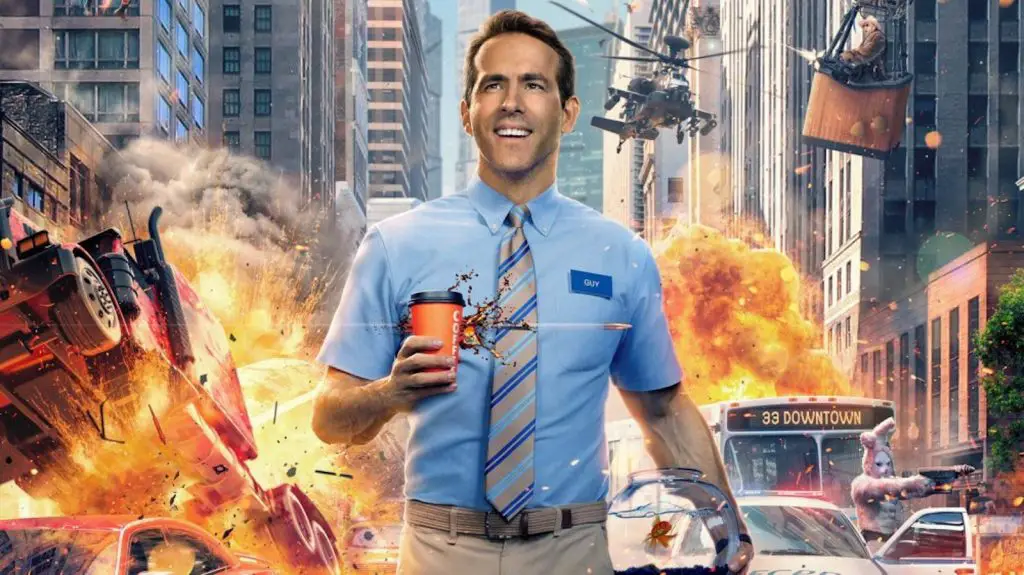
“I laughed, I cried, it became a part of me.”
Author Harlan Coben is bullshitting. In the final hours of a two-week book tour, the best-selling New Jersey crime master (Tell No One; Gone for Good) is in Portland, Oregon, where, at my invitation, he’s just caught a matinee of “Daddy Day Care,” the new Eddie Murphy vehicle that, in truth, did not inspire Coben to laugh nor to cry.
Well, maybe he cried a little bit.
“I’m the father of four children under the age of nine,” he explains, after calling me up from his hotel room to talk about the flick. “And the only thing that moved me in this movie was the fact that – What’s today? Saturday, right? – I have basically been sleeping in a different hotel for two weeks, and I haven’t seen my kids in all that time, so, some of the obvious corny, heart-tugging stuff at the end of ‘Daddy Day Care’ actually did start to get to me.”
“So what are you saying?” I pry. “Harlan Coben got teared up by ‘Daddy Day Care’?”
“Don’t credit the movie,” he warns. “I just miss my kids.”
That said, let’s talk about “Daddy Day Care.”
“First of all, I felt like a total pervert going to this movie by myself in the middle of the afternoon,” Coben admits. “I mean, here’s a 41-year-old male, all alone, surrounded by Moms and Dads with their little kids in tow, and I’m sitting here all by myself. I felt like a creep. How about you? Did you feel the same way?”
“Of course. But if you really want to feel like a pervert,” I reply, “try being a 41-year-old male going to see the The Princess Diaries all alone.”
“Did you do that? Ouch!” he laughs. “That’s bad. Some old dude, sitting there watching The Princess Diaries, that’s bad. You should have just gone to a porno film in a trench coat. You’d have been less noticeable.” After a second or two, Coben adds, “And, you know, The Princess Diaries. What a terrible movie!”
“You’ve seen it?” I ask.
“Sure, I’ve seen it. I have four kids!” he reminds me. “What a lousy movie. As much as I disliked ‘Daddy Day Care,’ which, if it were a little bit better, would have been generic, I thought Princess Diaries was worse, mainly because it was so long. At least ‘Daddy Day Care’ was only 90-minutes, but Princess Diaries! It was like the Nicholas Nickleby of bad kid films. Thank goodness for movies like Holes, an excellent kids’ film, or movies like ‘Monsters, Inc.’ I’d go crazy if every film was like ‘Daddy Day Care’.”
Clearly, Harlan Coben, certified tough guy and A-1 supreme architect of bloody suspense stories, is a man who knows his way around kids’ movies. In conversation, he refers to them the way a tent revival preacher cites Bible verses. When he brings up a scene in the movie where the Day Care Dads evolve from being bad caregivers to being inspired-and-clownish, but pretty decent caregivers, all in the course of a single song on the soundtrack, it reminds Coben of a certain Disney movie.
“Did you ever see Mulan?” he asks. “In Mulan there’s this scene where Donny Osmond sings, ‘I’ll Make a Man out of You.’ At the beginning of the song, these cartoon soldiers are the most incompetent soldiers in the world, then somewhere in the middle of the song he throws Mulan out of the army, and by the end of the song she’s turned herself into this lean, mean, fighting machine, she climbs to the top of the pole and all the incompetents have become great at everything they do, and it all takes place in one song. The storyteller in me wishes there were effects like that I could use in my books. That’s like 50 chapters right there that they just skip over. In Mulan, it worked really well. In ‘Daddy Day Care,’ it was not believable.”
“Um, what was the last, you know, grown-up movie that you saw?” I suddenly want to know.
There comes a long pause.
“I seriously cannot remember,” Coben says. “My kids are nine, six, three and 20-months. I don’t see movies unless they’re for kids. It’s amazing I ever have time to write.”
Amazing indeed.
But it’s a good thing he does.
The author of ten hard-boiled crime novels, Harlan Coben elbowed his way into the mainstream in 2001 with his crowd-pleasing shocker Tell No One. He followed it up with Gone For Good, subsequently becoming the first author ever to win the Edgar Award, the Shamus Award, and the Anthony Award for crime fiction. His newest work, the impressively intense page-turner No Second Chance (Dutton, $24.95), follows a desperate father as he tries to find the person who shot him in his kitchen, killed his wife, and kidnapped his daughter. I sent him to see “Daddy Day Care” because, well, it’s also about a desperate father (Murphy), who tries to build a new career by opening up a day care center in his home, so he can stay close to his son.
There are other similarities.
In “Daddy Day Care,” Murphy’s best friend gets kicked in the balls repeatedly. In Tell No One, somebody gets their ear hacked off. At a certain level, both stories are violent explorations of the lengths that some parents will go for their children.
Sort of.
Though nobody in Coben’s book dresses up like a giant Broccoli, as Murphy does.
“Have you ever dressed up like broccoli?” I ask Coben.
“I’m not that clever with my kids,” he admits.
“The movie does make it clear that entertaining kids is hard work,” I allow.
“It’s worse than hard work. It’s boring. Kids can be boring!” Coben says. “Sometimes you don’t feel so glowing about (being a parent), and we’re made to feel guilty about that. Every father I know says he envies me, because I’m a stay-at-home Dad, but I know those fathers, and when they’re home with the kids, they’re bored!
“In No Second Chance I deal with this a little bit,” he goes on, “when I write that it’s phony to say parents have no ambivalent feelings about their kids. It’s phony to claim that there isn’t some resentment in the loss of time. That doesn’t mean I’d give ‘em up for anything in the world, it doesn’t mean I’m not thrilled to have them – I am thrilled! But I’m not thrilled all the time.”
“It’s those moments when we Fathers have to be especially clever,” I remind him. “Come on, what’s the best trick you’ve come up with to entertain your kids?”
“Like I said, I’m not that clever,” he replies. “Though I sometimes do the Pizza Hat.”
“The . . . Pizza Hat?”
“Yeah,” he says. “When the kids won’t eat, I do this little stupid thing where I put the food on top of the fork, and I do this little voice, pretending I’m the fork showing off my new hat, and I’m such a showoff, so proud of my new hat, that the kids would want to eat the hat to get me, Mr. Fork, really angry at them. ‘Oh, look at my lovely hat! Isn’t it just the most beautiful hat you’ve ever seen? Don’t you wish you had a hat?’ And then they’d eat the food and he’d go, ‘Aaaaaaaah! Where’s my hat?!’ So they’d actually eat their food if I did that. The choo-choo train approach never worked that well. Tricking them into feeling hostile at the person who’s bragging about their hat, trust me, it’s very effective.”
____________________________________________________________
Writer David Templeton takes interesting people to the movies in his ongoing quest for the ultimate post-film conversation. This is not a review; rather, it’s a freewheeling, tangential discussion of art, alternative ideas, and popular culture.
Discuss David Templeton’s “Talking Pictures” column in Film Threat’s BACK TALK section! Click here>>>

